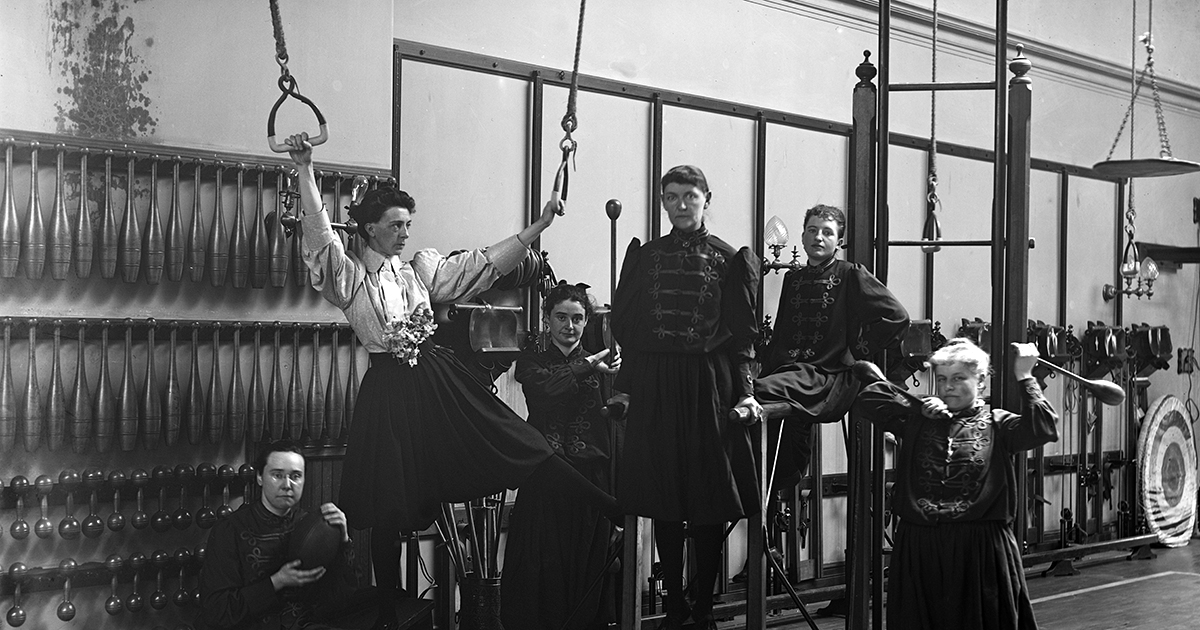
Applying the Six Principles of Athletic Training to Writing and Creative Work – The Marginalian
[ad_1]
By Maria Popova
The highest and hardest task of life may be to become entirely ourselves — to continually purify and clarify who and what we are, shedding the shoulds of culture, convention, and expectation to discover the innermost musts: those deepest and truest callings of the authentic self, or what we might call soul. And yet the great paradox is that the self is not a fixity but a perpetual fluidity, reshaped by every experience we have: every love and every loss, every person we meet, every place we visit, and every book we read. And so it must be: “A self that goes on changing is a self that goes on living,” Virginia Woolf wrote, for she understood that the finest souls “are always the supplest.”
The exquisite challenge of becoming oneself but remaining supple is at the center of every life, but it is amplified in the creative life — there is no greater tragedy for an artist than to stagnate and stiffen into a fixity, a template of oneself that ceases to create and instead caters to a self-myth. “Are we going to ossify,” the young Emily Dickinson wrote rhetorically to her great love and muse at the outset of an uncommonly creative life, throughout which she refused to ossify, as a person and as an artist.
In Sweat — his magnificent history of exercise as a lens on the body and the soul — Bill Hayes offers an uncommon antidote to ossifying, rooted in the parallels between creative practice and athletic training.

Drawing an analogy between the science of exercise and his own art — writing — he considers the six principles that sustain long-term personal fitness.
- The Principle of Specificity is the idea that “what you train for is what you get” — if your goal is endurance, train for endurance; if your goal is strength, train for strength; if you aim to make your prose more musical, train your mind’s ear on musical writing; if you want to write better observations, train to make better observations. “Be specific in your work goals as much as in your workouts,” Hayes writes.
- The Overload Principle requires that you “train a part of the body above the level to which it is accustomed” — it is the practice of pushing yourself beyond your comfort zone and trying new things. Hayes calls its equivalent in the mind “creative cross-training.” Rilke understood this: “People are drawn to the easy and to the easiest side of the easy,” he wrote in contemplating creativity. “But it is clear that we must hold ourselves to the difficult.”
- The Principle of Progression arises out of the Overload Principle, demanding that you move on as soon as you have mastered a new task. Georgia O’Keeffe knew this. “Making your unknown known is the important thing,” she wrote in her advice on being an artist, “and keeping the unknown always beyond you.”
- The Principle of Accommodation takes effect in the absence of the Progression Principle: Without challenge, the body — or the spirit — settles into stagnation or, worse, complacency. David Bowie urged against this reflex toward comfort and homeostasis: “Always go a little further into the water than you feel you’re capable of being in,” he advised artists. “Go a little bit out of your depth, and when you don’t feel that your feet are quite touching the bottom, you’re just about in the right place to do something exciting.”
- The Principle of Reversibility is an admonition against the trap of accommodation — when you cease challenging yourself, the arc of your progress bends backward, undoing your gains. It almost doesn’t matter what you do to keep your system from falling out of shape — it need not be your primary workout, or your primary work. Virginia Woolf felt that her informal diary writing “loosens the ligaments” for her formal literary writing. “One must do something, anything, to keep the creative and intellectual motors running,” Hayes writes.
- The Principle of Rest may then seem like a paradox — but it is the final and in a sense the most foundational tenet of any sustained practice. Anyone who has suffered the aches and injuries of overtraining, anyone who has suffered the spiritual hollowing of burnout, knows the cost of not taking time to recover from exertion, to replenish the body’s energy and the soul’s store of creative vitality. “Just as the body needs time to rest,” writes Hayes, whose superb book The Anatomist demanded of him a three-year recovery, “so does an essay, story, chapter, poem, or especially, a book.”

Couple with Zadie Smith on what writers can learn from dancers, then revisit some excellent advice on writing (applicable to all creative work) from James Baldwin, Albert Camus, Octavia Butler, Rachel Carson, Rebecca Solnit, and Mary Oliver.
[ad_2]
Source link




